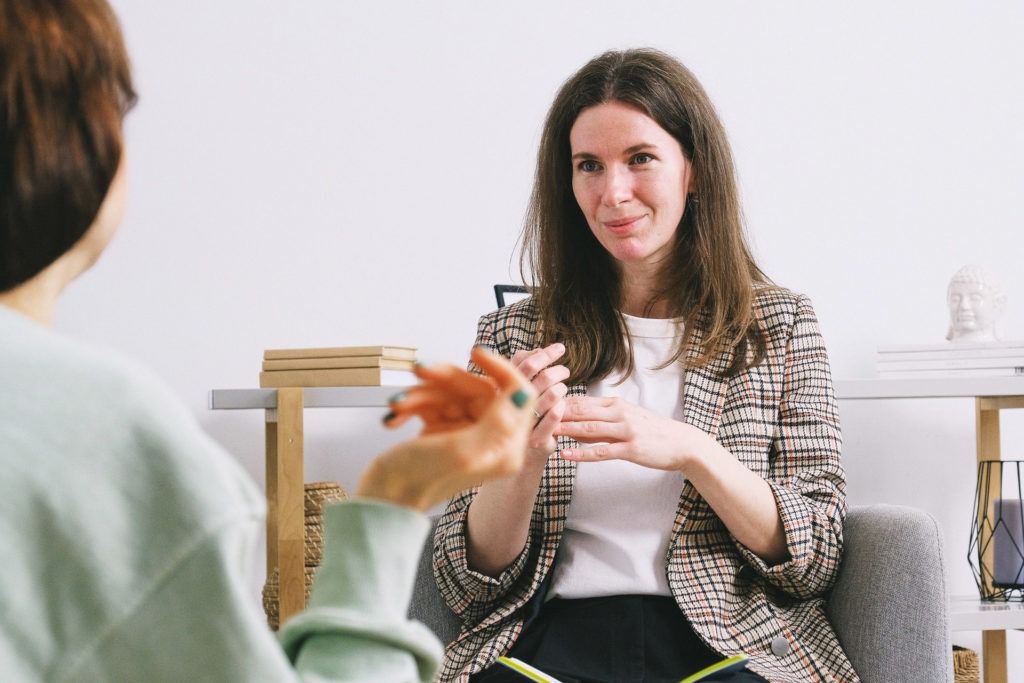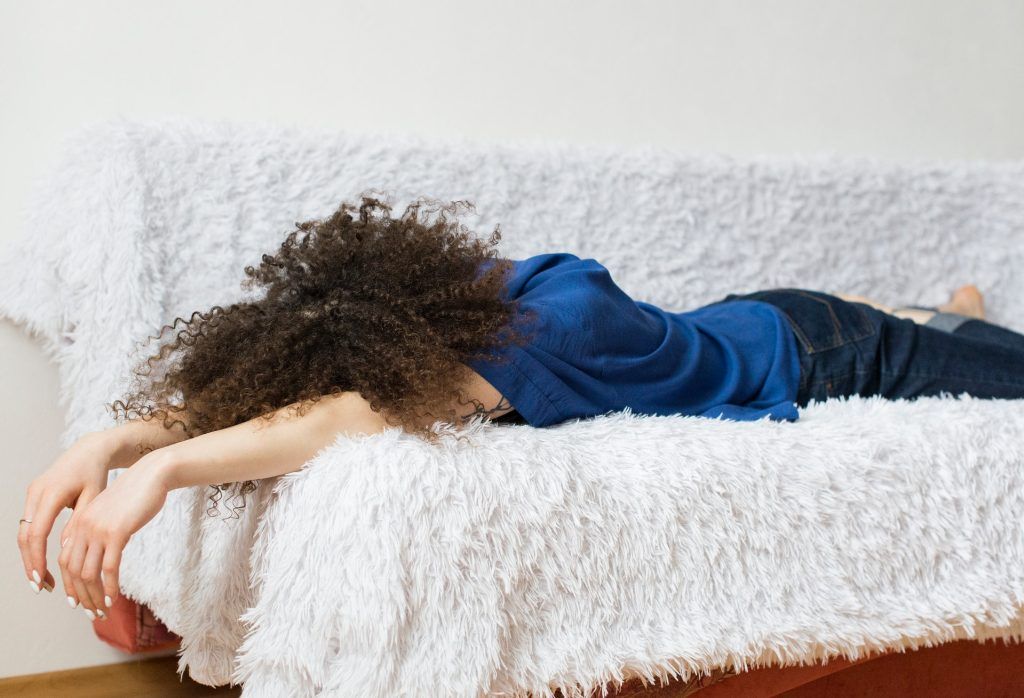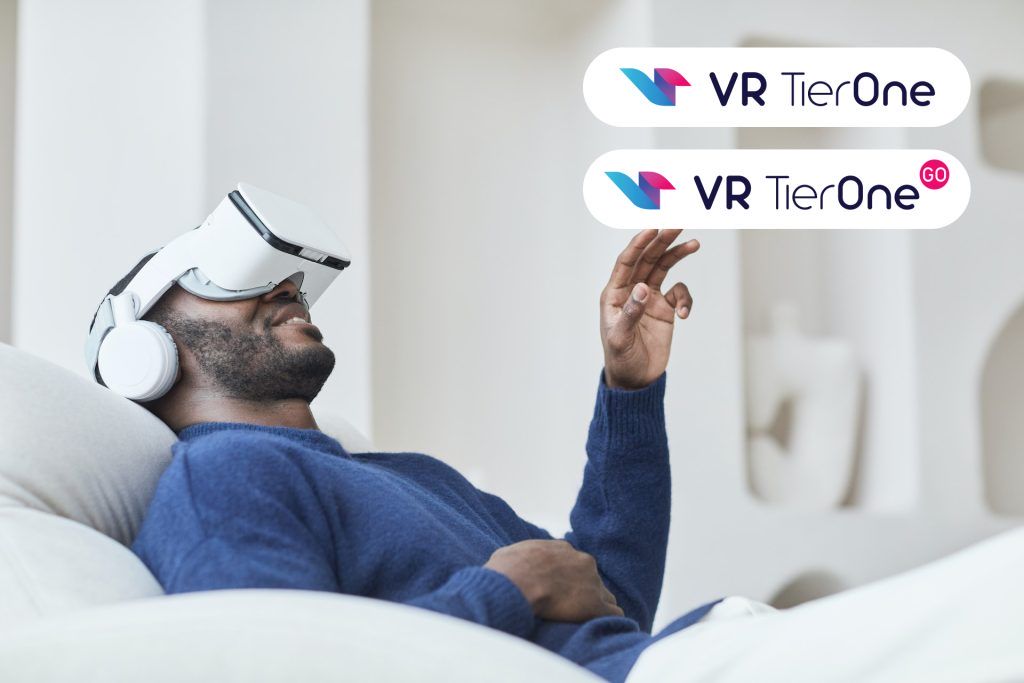Modern medicine is not a distant concept, it is happening here and now. We are experiencing a wave of change in healthcare that, like any other change, evokes emotions. On the one hand, we have the excitement and benefits of solutions based on new technologies, and on the other, an emerging natural uncertainty about what’s new and unknown. Virtual Reality used by VR TierOne is a technology that successfully alters the landscape of healthcare for its benefit. Both the hospitalized and medics benefit from solutions based on this technology. It is now that technological support is possible in such a delicate issue as mental health. Do patients and practitioners have reasons to fear that a solution based on VR, that is TierOne will replace a human therapist?
The future has come
In the past many things were reserved for humans. The advent of first industrial machines brought fear to people from the era of industrial revolution. This technoscepticism was dictated by the ignorance that fueled the vision of unemployment. Machines took over the works that were heavy and burdensome for humans, while people could focus on tasks requiring cognitive skills. Technology is there to help us and make our life easier.Innovative and technologically advanced products are valued in healthcare. New solutions supporting the skills of medical staff are needed and awaited, as they enable practitioners to work more efficiently. The physiotherapists know well that a massage device will not replace their skills or human touch, and thus they are not afraid that the robotic system enabling the patient’s rehabilitation will take away their work, as they know it will simply make it easier.
Investing in modern solutions allows you to offer diversity to patients, increase the level of services, be more competitive on the market and relieve medics.Among the technologically advanced medical solutions, there are new ones for neurorehabilitation, intended for the treatment of addictions, phobias and innovative ones for management of anxiety, stress and depression – such as VR TierOne. Can mental health specialists be confident about their profession, since VR TierOne supports the patient’s psyche, allowing for psychological comfort and guiding the patient to regain good mental condition?
Economic value
Education of practitioners is an expensive process that takes years to complete, and the exercise of the medical profession requires considerable intelligence. We need doctors in every corner of the world, in every hospital and clinic. There is a shortage of practitioners, therefore the waiting times for appointments are often too long, and the visit itself is too short. That is why the work of practitioners is supported by modern technologies both in administrative work and in medical practices. Artificial intelligence is already able to diagnose diseases with greater accuracy than humans, which would seem to be a threat to the economic value of the medical profession. Despite technological progress, the professions of doctor and therapist will not disappear, as they are based on an emotional relationship and understanding.It is hard to imagine technology replacing mental health counseling and treatment, although it can support them through apps or virtual therapies.

To support, not to deny
The Virtual Reality technology can support practitioners already at the stage of education, as it facilitates detailed understanding of human anatomy and physiology, and enables assisting in surgery. At a later stage, in medical practice, the medical Virtual Reality does not replace the professional, but supports therapeutic procedures instead. “Support” is the key word for the various applications of modern technologies in medicine.Digital progress does not displace humans in tasks that require higher levels of creativity and emotional intelligence. Although the existing modern solutions help us deal with the human psyche, they do not deprive psychologists, psychotherapists or psychiatrists of their positions. It is also the case of the VR TierOne solution, which offers a therapy prepared by specialists, maintained in the Ericksonian trend, in a created virtual garden. The VR TierOne solution reduces stress, anxiety and depression, allowing to take care of the patient’s psyche when the therapist is unavailable. VR TierOne supports the patients in difficult moments of sudden deterioration of their health, especially during stressful hospitalization and long-term rehabilitation following a stroke, heart attack and COVID-19. The improvement of patients’ well-being and the increase in motivation achieved during VR TierOne therapy enables correct implementation of the rehabilitation plan. Discovering your own strength during virtual therapy allows you to engage in exercise, change your lifestyle to a healthier one, and recover physical and mental health.
Flesh and silicon
Flesh and silicon do not have to stand in opposition, the development of people and technology are intertwined, and technology is designed to serve people and pose hope for humanity, and not a threat. It cannot be forgotten that behind every technology and device stand their creators. The VR TierOne solution has been responsibly shaped by specialists, including psychotherapists, in response to the growing need to treat depression, stress and anxiety.The work of our team found its fruition in an effective medical device that enables supporting sessions in an optimal virtual environment, which is extremely useful in a situation when the surrounding reality is not conducive to recovery.

Sensible application of VR technology makes the patient completely safe, giving no reason to be afraid of virtual therapy. The VR TierOne solution does not replace the therapist and traditional therapy, in which communication takes place with the change of transmitting-receiving roles. Nevertheless the VR TierOne solution satisfies the immediate need for therapy and functions as a tool for helping people in an unfavourable mental condition. VR TierOne can also be found in the arsenal of useful tools for a psychotherapist, as the virtual therapy helps the patients to open up, cooperate and establish a personal relationship with the therapist. Appropriate selection of technological solutions relieves people in the professional field and enriches their abilities. Openness to innovation, adopting new effective solutions allows doctors and patients to achieve therapeutic success, and medical institutions to be successful in their business.
The right solution
We are witnessing an increasing number of people suffering from depression worldwide. Depression is a polyetiological condition, which renders it difficult to clearly indicate one cause of the increase in its incidence. Undoubtedly, however, it is the increasing pace of life and prolonged stress that contribute to the emergence of depression. The pandemic isolation, and history of COVID-19 also contributed to the rise in the incidence of depression. Unfortunately, the number of mental health professionals does not grow in pair with the dynamic increase in the number of patients. Therefore, even when patients decide to undergo psychotherapy and secure financial resources for this purpose, they may still face the issue of finding a specialist, who will have time for a new patient. Managers of medical facilities, who wish to hire an additional psychotherapist, may face a similar challenge. The profession of a psychotherapist requires meeting a number of formal and characterological conditions. The education of a future psychotherapist takes several years and it is expensive, the completion of a course of study is just a starting point. And the patients require help now. The only solution both for medical facilities that have not been able to help depressed patients so far, and for facilities already providing mental health services, is to apply the ready-made VR TierOne medical device. This solution will facilitate the work of psychotherapists, becoming a tool that diversifies the therapy and shortens its course, which allows the specialist to deal with more patients. In treatment centrer that do not have qualified staff authorized to conduct psychotherapy, VR TierOne enables professional intervention thanks to the effective and repeatable VR TierOne treatment method. The development of Virtual Reality technology, made harnessing the device in the treatment of depression possible, effective and safe. So will VR TierOne replace the therapist? No, but human-machine cooperation allows more patients to be helped, so it is the only valid solution to the social problem of untreated depression.






